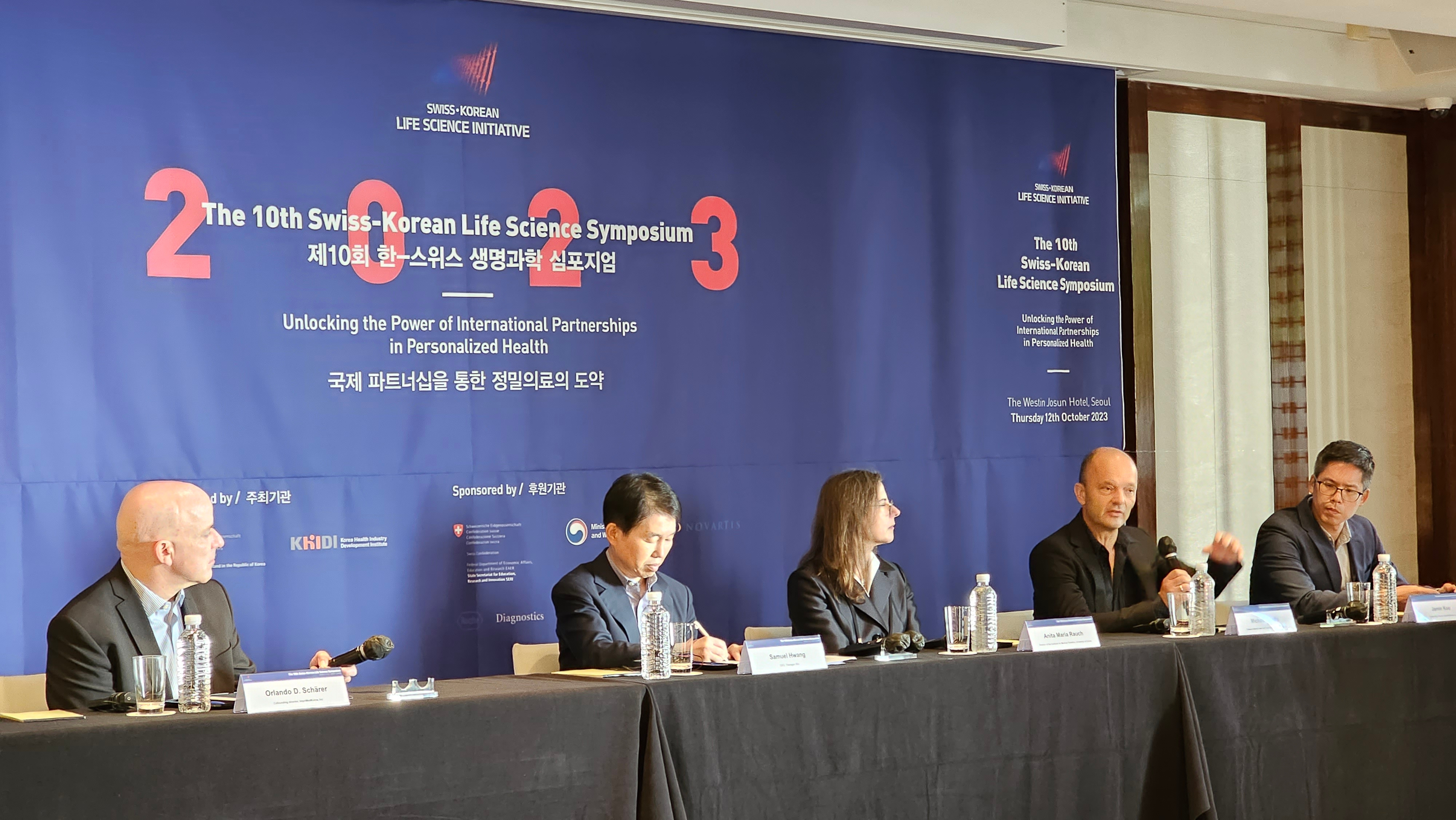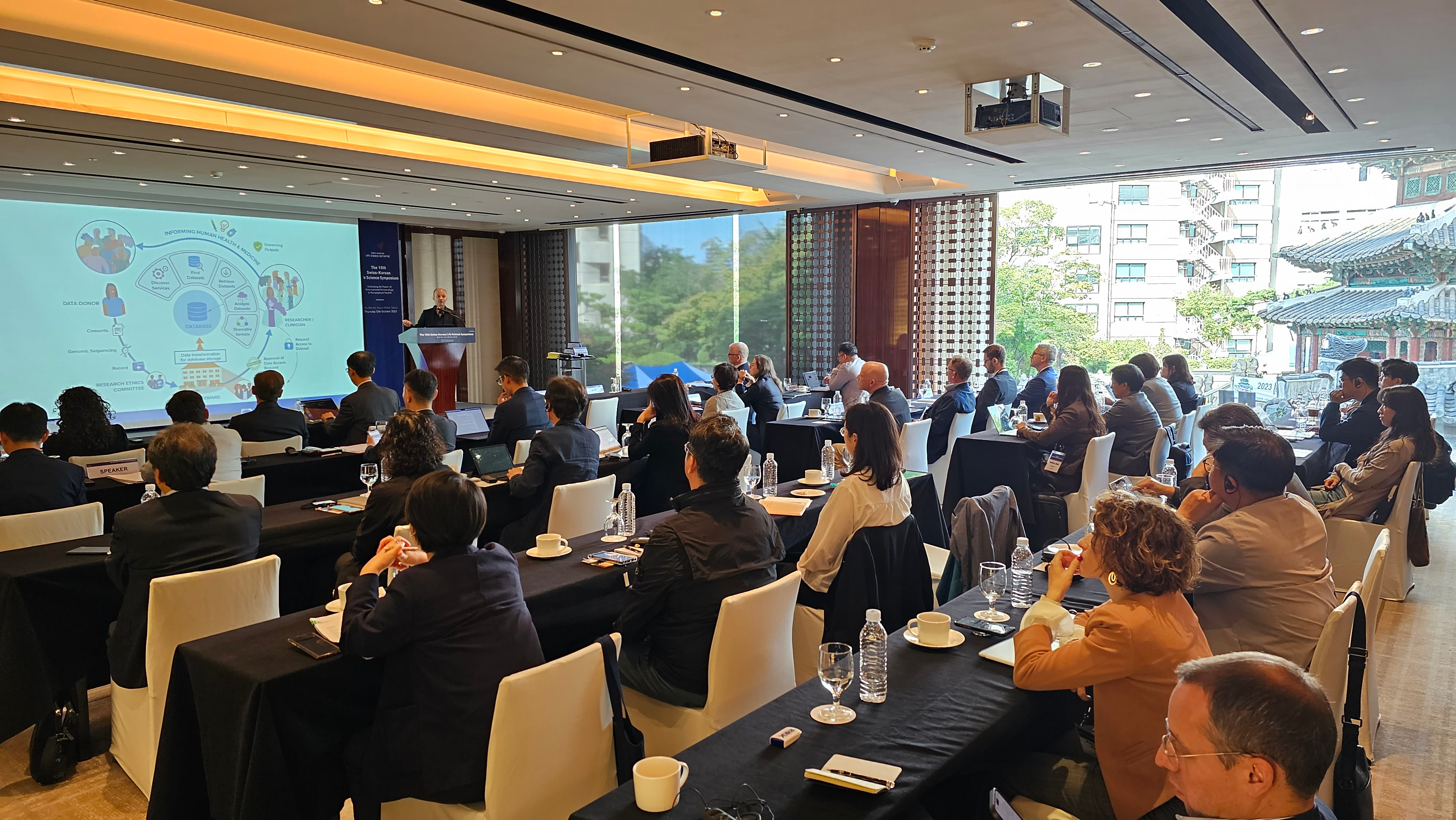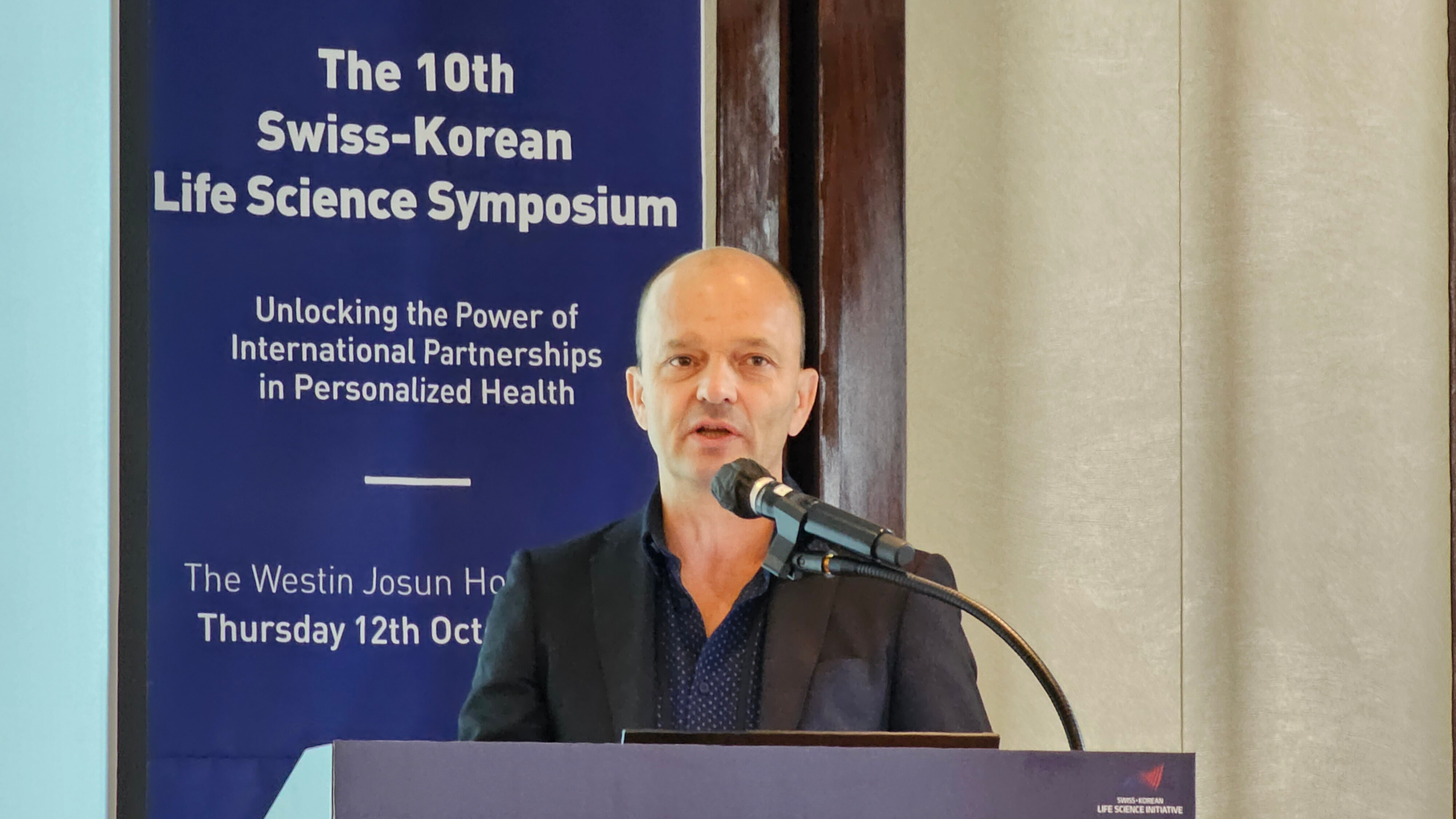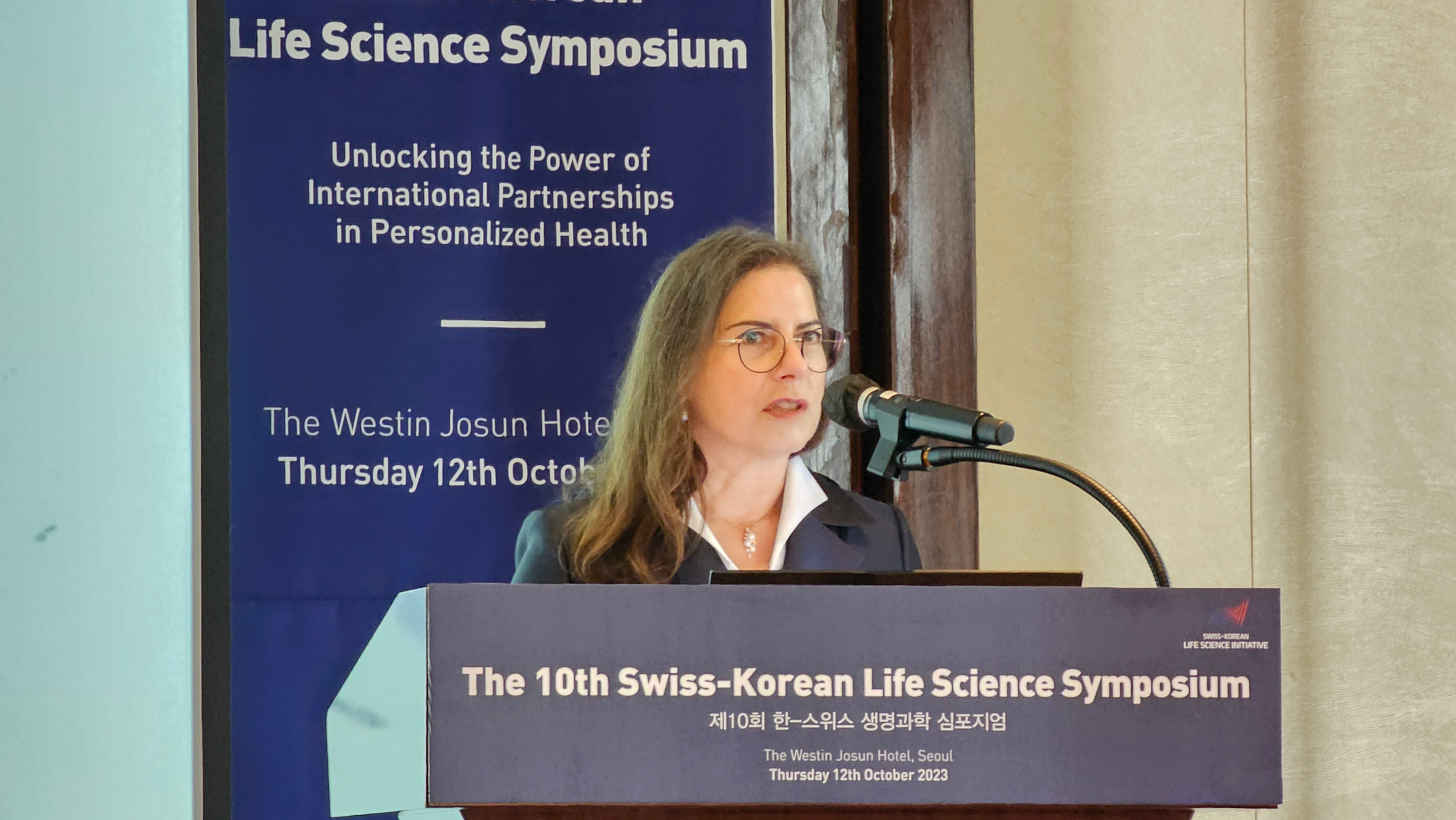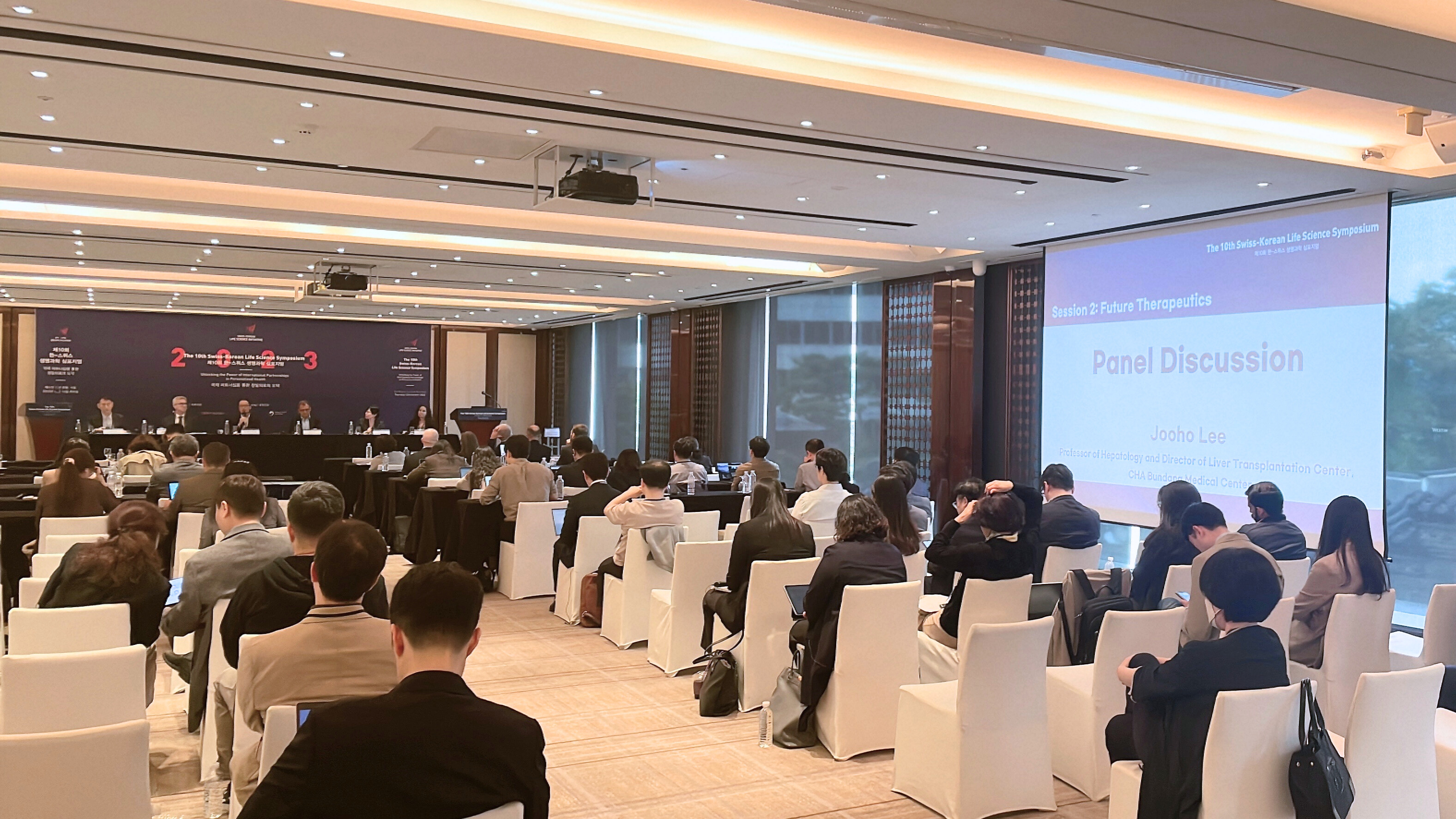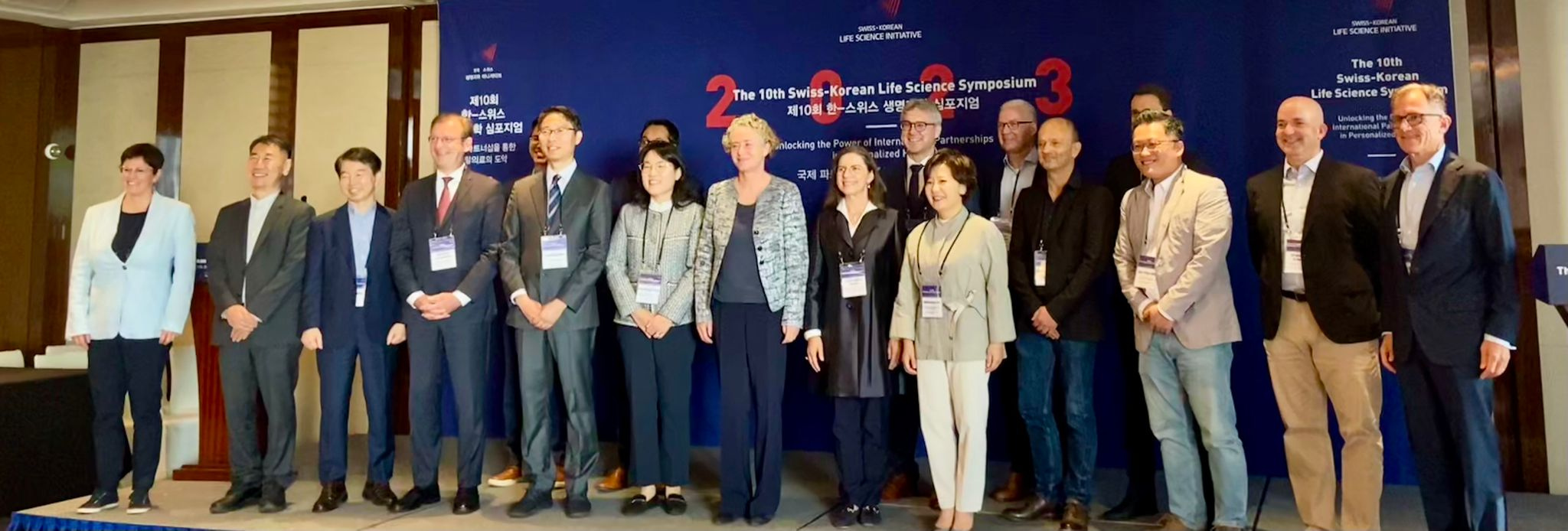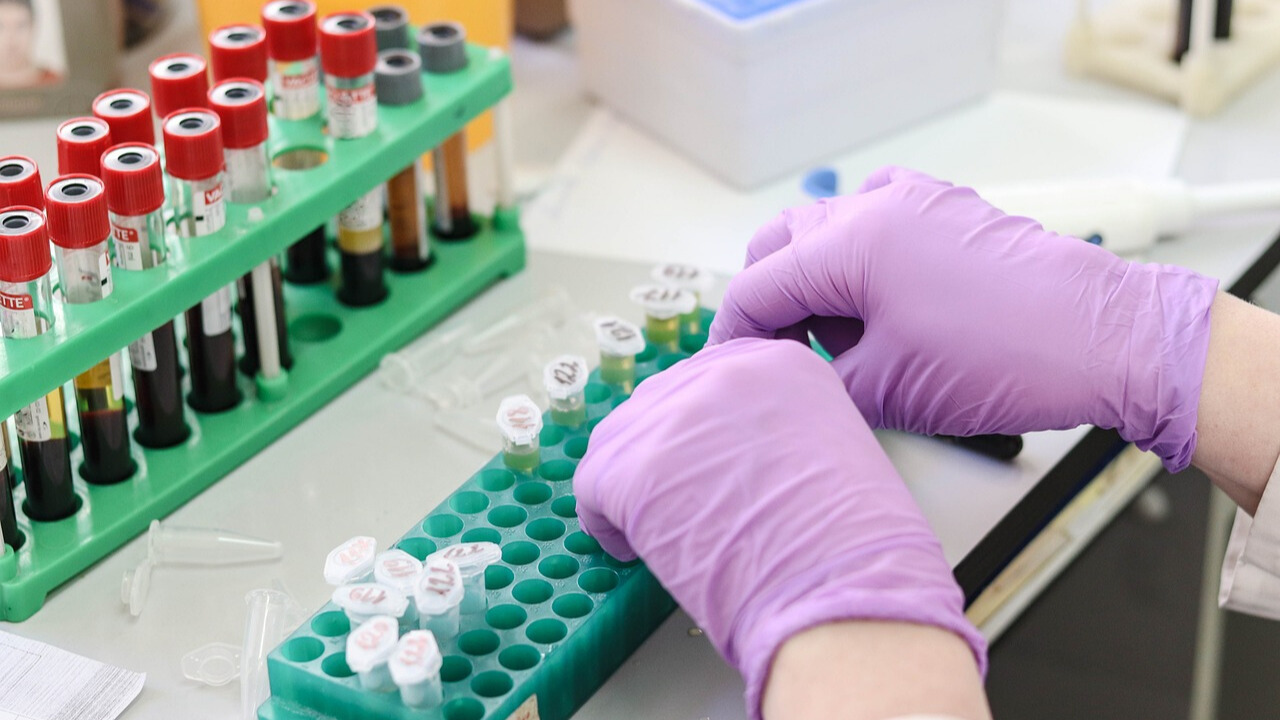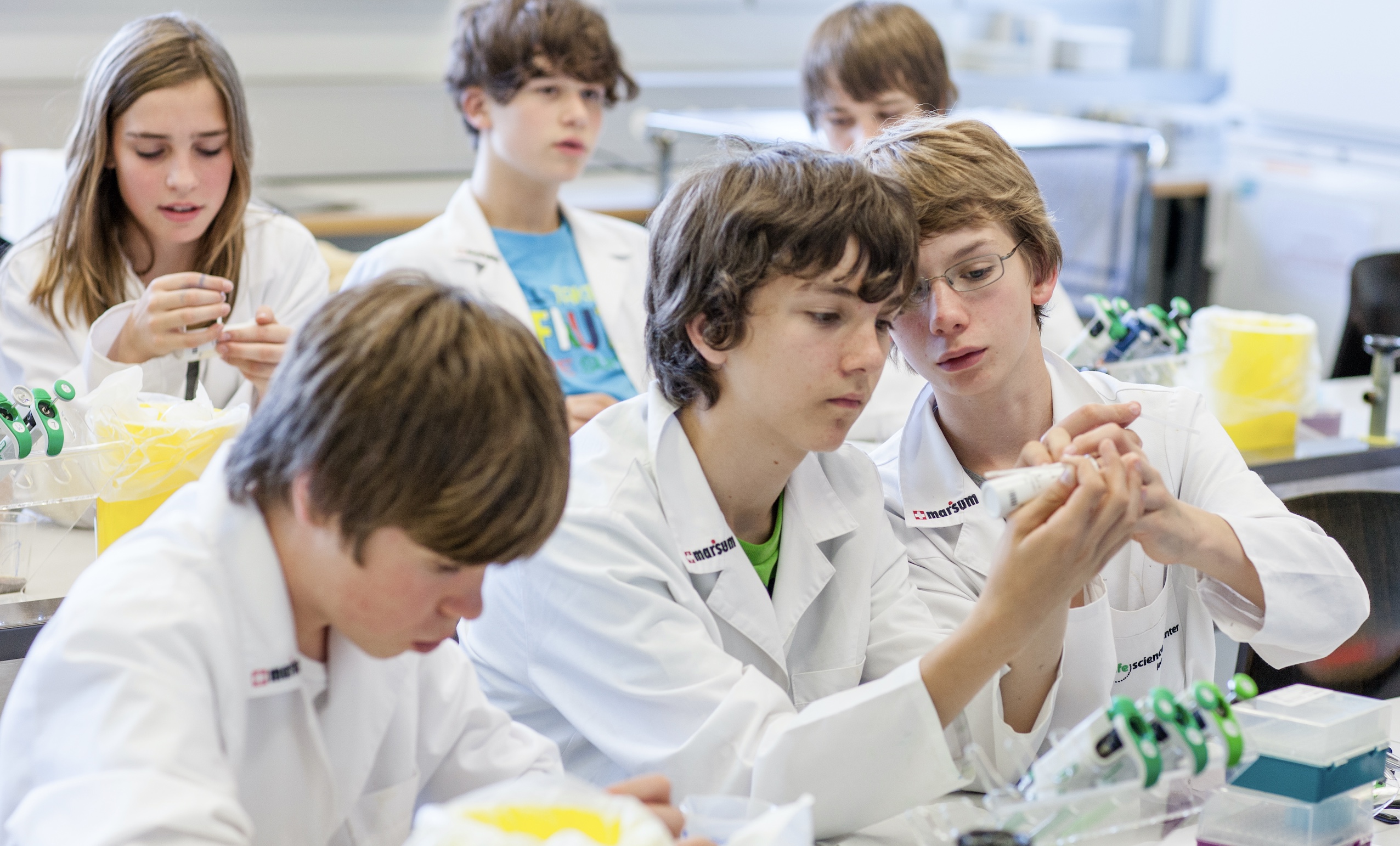UZH Scientists Contribute to Swiss-Korean Life Science Symposium
The Swiss-Korean Life Science Initiative recently hosted its 10th symposium in Seoul, featuring two UZH researchers who shared insights into the latest developments in cancer treatment and the study of childhood brain disorders. With sessions on gene-based diagnostics, future therapeutics, and cognitive enhancement, the Swiss-Korean Life Science Symposium 2023 offered a wealth of life science knowledge, fostering exchange between Korean and Swiss scientists.
This year’s symposium, themed “Unlocking the Potential of International Collaboration in Personalized Health”, brought together researchers, industry leaders, and healthcare startups from Switzerland and Korea. During the symposium, Michael Baudis, Professor of Bioinformatics and Theoretical Cancer Genomics, and Anita Rauch, Professor of Medical Genetics and Director of the Institute of Medical Genetics at UZH, presented their research that redefines our approach to medicine and genetics.
UZH's Dedication to Advancing Healthcare
In a session dedicated to gene-based diagnostics and prevention, Michael Baudis introduced the concept of "federated data discovery”. This innovative approach allows scientists to efficiently access and analyze genetic data, offering the promise of personalized cancer treatments that can significantly improve patient outcomes. This aligns with the framework of the Global Alliance for Genomics & Health, of which UZH is a founding member, advocating technical standards to expand the responsible, voluntary, and secure use of genomic and health-related data by international researchers.
Meanwhile, Anita Rauch drew attention to children's neurodevelopmental disorders, striving to uncover their root causes and develop preventive strategies that can change lives.
The active involvement of UZH researchers, including Michael Baudis and Anita Rauch, in the Swiss-Korean Life Science Symposium, holds significance for the improvement of healthcare worldwide. Their research, combined with the collaborative efforts of fellow scientists in Korea and worldwide, marks a path toward a future where healthcare is more personalized, effective, and accessible to individuals regardless of age or gender.
UZH and Korea: Cultivating Academic Bonds
UZH has cultivated enduring partnerships with Korean research and higher education institutions. Both Switzerland and Korea are recognized as global innovation leaders, fostering collaboration between UZH and Korean researchers, particularly in the fields of biology, medicine, and neuroinformatics. Beyond research collaboration, an active student exchange and mobility program exists between UZH and Korean universities, reflecting the growing interest in Korean culture and language among Swiss students.
Furthermore, Claudia Witt, Director of the Digital Society Initiative at UZH and of the Institute for Complementary and Integrative Medicine at the University Hospital Zurich, has played a pivotal role in strengthening the bonds between UZH and the Swiss-Korean Life Science Initiative, which organized the symposium. Serving on the Scientific Steering Committee, she actively advocates for interdisciplinary collaboration and the translation of life science research into practical solutions.
Anne Nuria Boekhout
